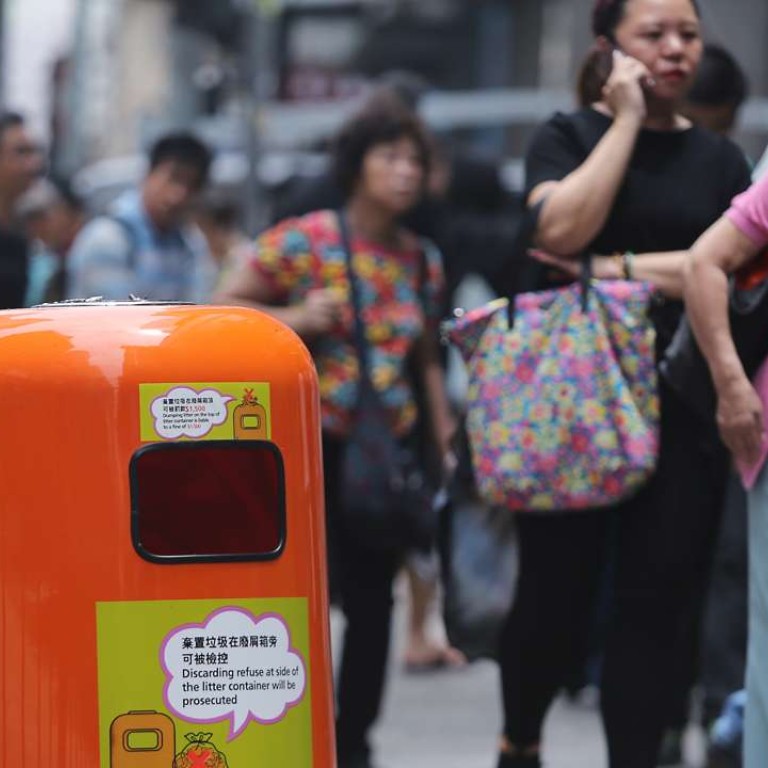
How fewer rubbish bins can help reduce waste in Hong Kong
Wendell Chan says the government is right to cut the number of bins on the streets, but the move must be part of a holistic ‘zero waste’ strategy
Can we really not live without rubbish bins? To align with the inevitable waste charging scheme, Hong Kong’s Food and Environmental Hygiene Department has announced the move to introduce new bins with smaller openings and also reduce their number on the streets. Aside from criticism about the new design, some people think Hongkongers will be more inclined to litter with fewer bins around.
Vanishing rubbish bins and rotten attitudes: Hong Kong’s struggle to stay clean
I am baffled by this logic. We have some 42,000 rubbish bins, significantly more than our neighbours. That is almost one bin for every 180 people. In Taipei, it is one for 1,200 people. Claiming that streets would be littered if we take away bins implies that Hong Kong is so uncultured we cannot even be responsible for our own actions, which I sincerely hope is not the case.
Rubbish bins serve as beacons for litter. Store trash somehow finds its way into these orange bins. Recyclable waste, like cans and bottles, may also end up there. By some bizarre law of physics, litter also has a tendency to gravitate towards overfilled bins. This is not only unsightly, but is also a hygiene issue. The convenience of rubbish bins makes us less aware of the litter we create.
The decision to reduce the size of bin openings is, however, puzzling. Overfilled bins did not stop people from tossing their litter next to them before. Smaller openings will just encourage people to build an island of trash around the bins.
Former health chief rubbishes design of Hong Kong’s new bins

Hong Kong’s plastic waste epidemic, and why it’s bad news for all of us
The move to reduce the number of bins is a step in the right direction. However, it is not an end-all to eliminating waste. There was insufficient communication to promote the government’s intention to combat waste.
With the municipal solid waste charging scheme on the horizon, the government has to ramp up its efforts to create a less wasteful society. The move to reduce the number of rubbish bins on the streets must be paired with putting out recycling bins.
The Environment Bureau needs to implement producer responsibility schemes as soon as possible. Plastic products should be a priority. The recycling industry should be supported with long land leases, coordinated collection and separation points, financing for state-of-the-art facilities and procurement policies supporting local recycled products. The government must ensure a coordinated response; much of Taipei’s success comes from its coherent waste reduction strategy.
And Hong Kong citizens have a role to play. We need to acknowledge waste is an unrecognised resource. As responsible citizens, we can aim for “zero waste” and support the circular economy, starting with “zero rubbish bins”.
Wendell Chan is project officer at Friends of the Earth
